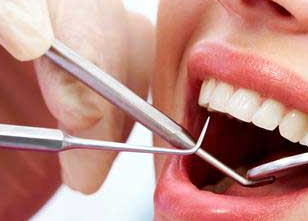In the field of oral medicine, a periodontal clinical condition that is not connected with biofilm is referred to as desquamative gingivitis (GD). This condition is typically identified in a group of individuals who come with autoimmune conditions such as lichen oral plane. Desquamative gingivitis is often misdiagnosed as simple plaque-related gingivitis, impeding the identification of the underlying systemic processes that cause the lesion and, in some cases, significant morbidity and mortality.
What is Desquamative Gingivitis?
It is characterized by gingival epithelial sloughing following the creation and rupture of a vesicle. As a result, the gingiva appears erythematous and frequently edematous. The patient complains frequently of bleeding gums and feels uncomfortable and pain while chewing.
The disease process, which can induce either a subepithelial or an intraepithelial vesicle, is the pathogenetic mechanism by which the epithelium is separated from the underlying connective tissue.
Desquamation can also be generated by purposeful local friction (Nikolsky sign) or inadvertent local friction caused by local variables such as masticatory forces, inadequate restorations, or calculus.
The presence of dental plaque frequently makes the symptoms worse. As indicated earlier, Desquamative Gingivitis is a clinical, non-pathognomonic term as opposed to a unique diagnosis, and it may reflect the oral clinical presentation of a variety of systemic mucocutaneous disorders.

Desquamative Gingivitis Symptoms
Desquamative gingivitis symptoms might differ from person to person and can be moderate to severe. The most typical symptom is a burning sensation in the gums that can be made worse by food, liquids, or tooth cleaning. Other signs may include bleeding when cleaning your teeth as well as gum redness, swelling, and pain. Ulcers may develop on the gums and the gum tissue may start to split from the teeth in more severe situations. It is crucial to visit a dentist or other healthcare provider if you encounter any of these symptoms to make a differential diagnosis.
Desquamative Gingivitis Causes
It is not understood what causes desquamative gingivitis; however, an autoimmune reaction is thought to be the root of the problem. There are a few hypotheses that have been proposed to explain the autoimmune reaction that may be responsible for desquamative gingivitis; however, the IgA deficiency theory seems to be the most plausible explanation. Immunoglobulin IgA aids in the body's defense against infection. Gingival epithelial cells could be attacked by antibodies if IgA levels are low. Inflammation and, ultimately, the death of these cells might result from this condition. Other autoimmune illnesses, such as lupus erythematosus, oral lichen planus, or pemphigus vulgaris, have been linked to incidents of desquamative gingivitis.
Desquamative Gingivitis Treatment
Desquamative gingivitis is often treated with a multifaceted strategy that targets both the condition's underlying cause and its symptoms. Desquamative gingivitis is typically brought on by an autoimmune condition like lichen planus or pemphigus vulgaris. As a result, immunosuppressive medicine is often used to treat the underlying problem. The purpose of treatment is to lessen inflammation and encourage gum tissue healing. Patients might also be instructed to take other drugs or apply topical corticosteroids to ease their symptoms. A balanced diet and appropriate dental hygiene practices can help manage symptoms and encourage recovery. A healthy lifestyle can also help.







0 Comments
For comments please reply here.......